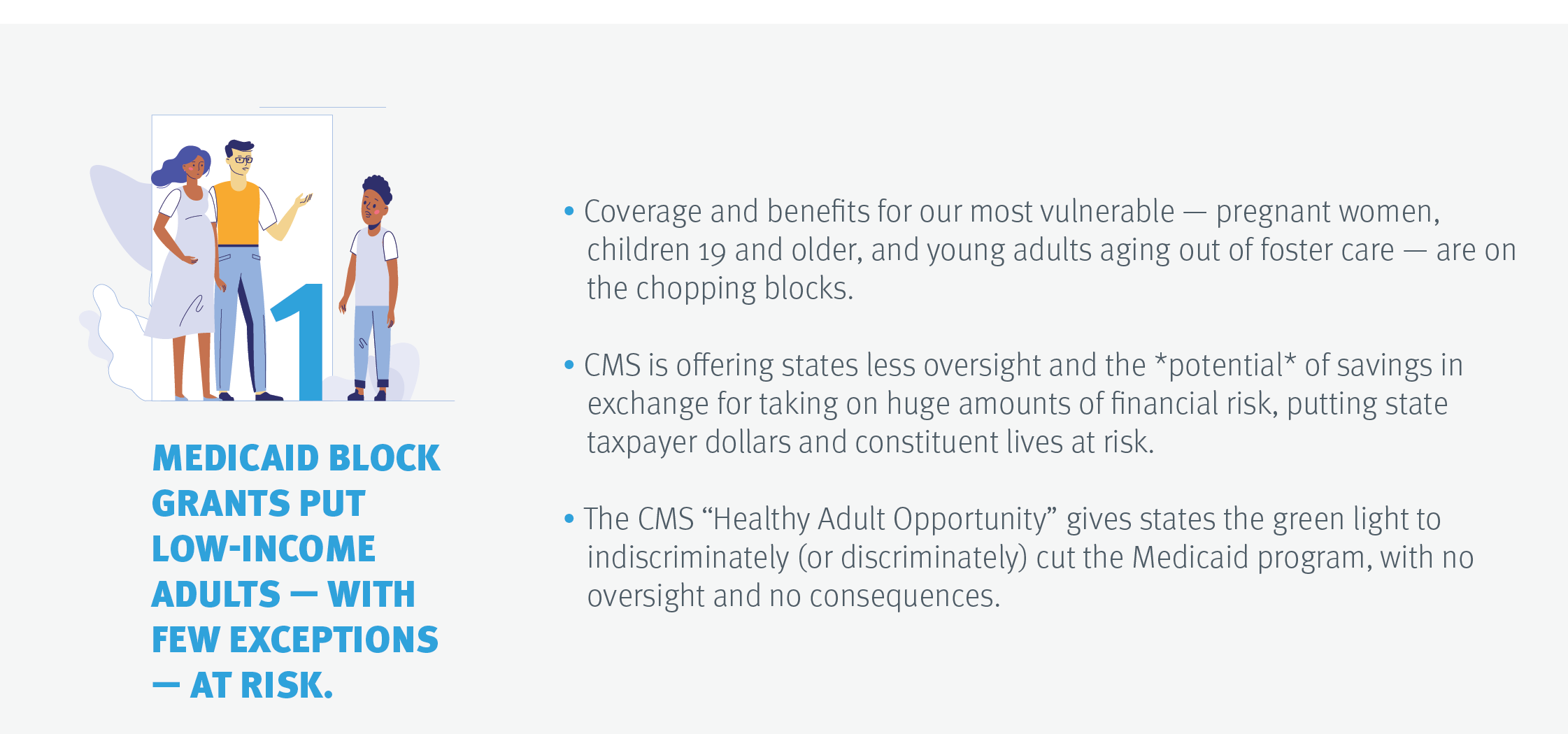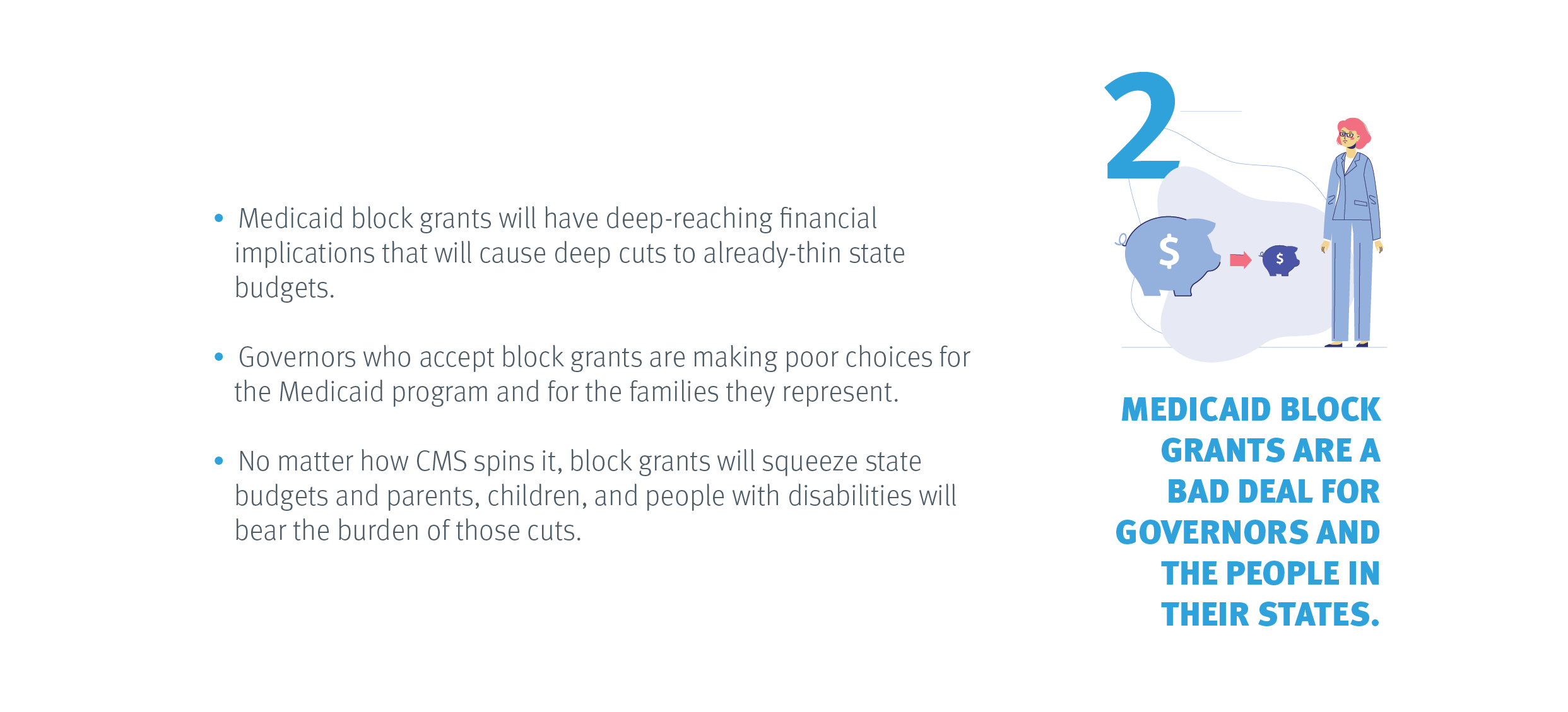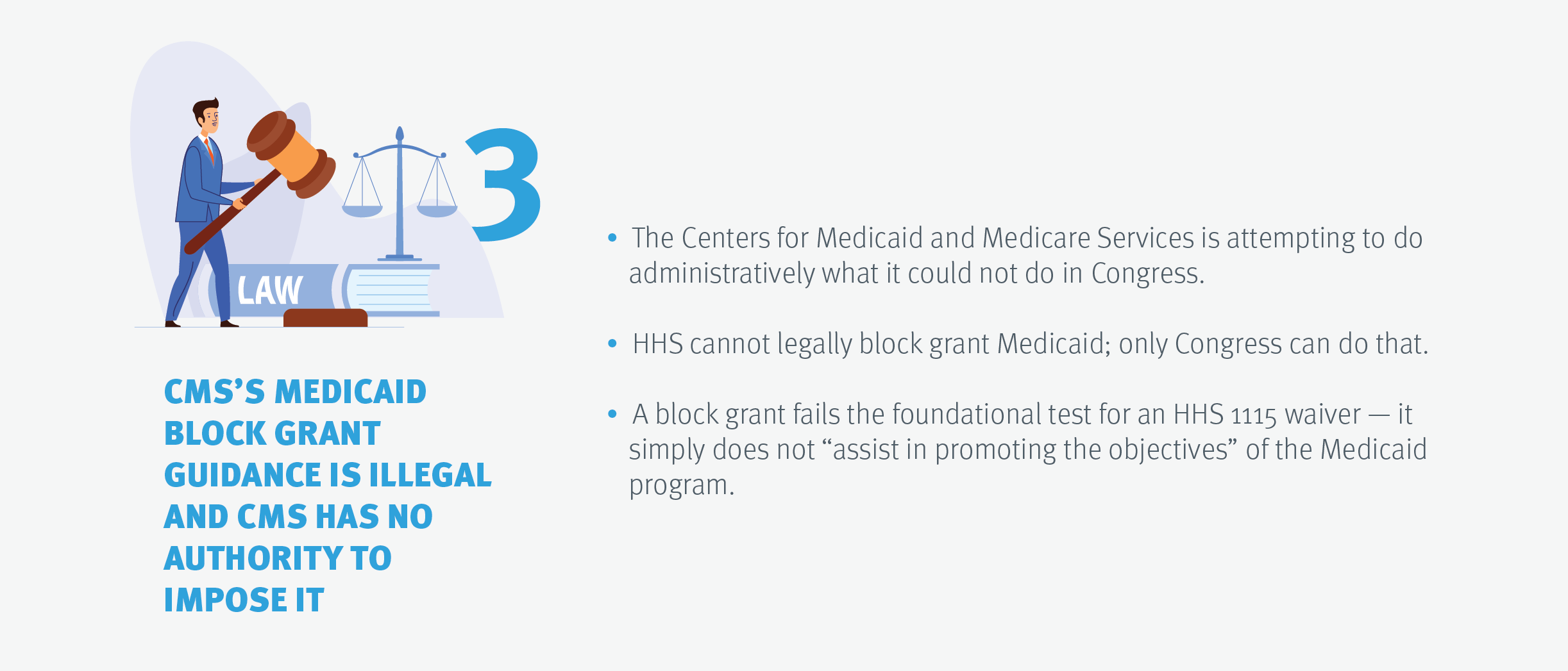
The Trump Administration’s latest attempt to dismantle Medicaid
This week, we saw yet another attempt by the Trump Administration to dismantle a major social safety net program and hurt the most vulnerable among us. On Thursday, the Administration released a letter to state Medicaid directors giving them an offer: we’ll give you federal Medicaid dollars in a lump sum up front, and you get to make restrictions in benefits or eligibility so you can spend less. The catch? Low-income people, many of whom gained access to Medicaid under the Affordable Care Act, will be denied insurance, and state budgets will be even more ravaged down the road.

The letter, called a guidance, encourages states to apply to receive their Medicaid dollars in a “block grant,” or fixed amount of money, to cover their Medicaid beneficiaries. This is a total departure from history: in its 50-plus year existence, Congress has enacted legislation to provide open-ended matching funds to states. This means that the federal government pays its share of however much a state spends on health care. If a state has unexpected health care costs – for example, to respond to a natural disaster, an economic downturn, or an outbreak or epidemic — the federal government continues to support the state. In the case of block grants, however, when states exceed the set amount they’ve been given, the state must bear the full costs or cut back on coverage.
And cut back on coverage they would. Under the proposal, states can cut 1) Medicaid eligibility, leaving fewer people enrolled; 2) services and benefits enrollees receive, including restricting prescription drugs covered; and/or 3) provider rates, meaning fewer providers would be willing to take Medicaid enrollees. Each option means less health care for the low-income individuals and families relying on Medicaid and less money for the communities who benefit from the state and federal spending on health care.
Millions could be hurt, including some of the most vulnerable: pregnant women, homeless adults, and young people aging out of foster care. As the National Health Law Program pointed out, “communities of color, women, LGBTQ individuals, and those who live at the intersections of these identities will face the brunt of the harm,” as block grant options would “only exacerbate the vast health disparities experienced” by these Americans.

In a statement released yesterday, Families USA said “…[B]lock grants are possibly the worst Medicaid idea ever presented to states by a federal Administration. They would allow the federal government to off-load shared Medicaid responsibility at the expense of deep cuts to state budgets, vital programs supported by states, and the people who rely on those programs.”
The Center on Budget and Policy Priorities said such block grant waivers “would pose serious risks to beneficiaries, health providers, and states.” The Georgetown University Center for Children and Families said the guidance, which the Administration head-smackingly calls the Healthy Adult Opportunity, “gives(s) states unprecedented new tools to make cuts to health care in their state. These cuts would also come with far less transparency and oversights.”
In anticipation of the Administration’s announcement, 30 House Democrats sent a letter to the Secretary of the Department of Health and Human Services and the head of the Centers for Medicare and Medicaid Services saying that the goal of these block grants “is to cut benefits and further limit access to publicly funded health care” and that, if implemented, this proposal “will threaten health care for millions of individuals, hurting them when they are the most vulnerable.”
Block grants and per-person caps of Medicaid dollars have been rejected by Congress multiple times, most recently in 2017 when Congress rejected attempts to repeal the Affordable Care Act. Congress has also repeatedly rejected the Administration’s multiple attempts to slash Medicaid funding. This move is President Trump’s way of going around Congress and pushing through administratively what he didn’t get legislatively. But here’s the thing: most experts believe this is illegal – that this kind of change can only be made by Congress, and that the President does not have the authority to change Medicaid’s financing structure.

Experts also believe this move is illegal for other reasons, including the fact that under the Medicaid statute, waivers can only be used to promote the objectives of the program. For example, a waiver could be issued to experiment with a pilot program that could expand coverage and services. But cutting Medicaid and throwing vulnerable people off its rolls isn’t promoting and furthering the mission of the program. That was why federal courts have rejected waiver approvals for Medicaid work requirements: such plans clearly result in fewer medical services, not more. Here too, court challenges are sure to follow, and when they do, we’ll keep you in the loop about them.
Want to help spread the word about this awful move? Families USA has created a digital toolkit containing key messages, background information, analyses, infographics, and more to help you highlight the devastating impacts these block grants pose. The National Health Law Project also has key talking points available here. For more information, see this piece from the Washington Post, and watch this Facebook Live event with Families USA.

